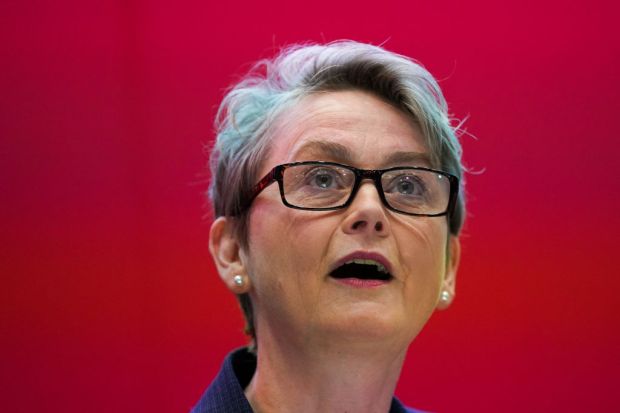Labour narrowing the poll gap with the Conservatives has got to be good news for Keir Starmer, right? Wrong, actually.
Let me tell you why it isn’t and why the recent tightening of the polls should leave us more convinced than ever that the Conservatives are on course for a comfortable victory at the next general election.
First off, let’s take the headline data. Politico Europe’s poll of polls is as good a place to find it as any and it tells us that on 23 June the Tories were averaging 43 per cent, to Labour’s 33 per cent. By 29 July, the Tories were scoring 40 per cent to Labour’s 35 per cent. So a ten point average Tory lead has halved to a five point average Tory lead in the space of five weeks.
That’s clearly not sufficient to justify protracted cork-popping among champagne socialists at Labour HQ, but maybe a bargain basement bottle of prosecco could be opened? They shouldn’t even bother with that.
For what we’ve actually been witnessing is an enhanced ‘don’t know’ effect. Labour has shown it simply can’t capture significant numbers of Tory switchers despite being presented with a target-rich environment at an opportune moment in the electoral cycle.
For several weeks now, Boris Johnson’s administration has been enraging a big chunk of its natural support base. The PM’s attempt to dodge isolation after getting pinged, his apparent support for vaccine passports, his failure to tackle irregular migration across the Channel and increased awareness of the implications of his green agenda are just some of the provocations.
The combined effect shows up dramatically in the latest Conservative Home readers’ survey of ratings for Cabinet ministers. The PM’s net positive score has plummeted 36 points in a single month, to just 3.4. The ratings of Home Secretary Priti Patel have collapsed by 20 points, indicating that it is the chaotic situation on the south coast that is hurting the Government most of all.
But don’t think that the Politico polling averages, showing the Tories down three and Labour up two, indicate voters are walking across the aisle.
In fact the big move has been from Conservative to ‘don’t know’. And given that the ‘don’t knows’ get redistributed in proportion to positive support measured for each party before headline figures are issued by pollsters, this alone is sufficient to explain the smallish Labour uptick as well as the Tory decline.
Ben Walker of the Britain Elects website has illustrated the effect in respect of recent YouGov polls in a piece for the New Statesman.
Looking at 2019 Tory voters, on 16 July YouGov found that some 74 per cent still intended to vote Tory, with 14 per cent saying they were unsure or would not vote.
But by 21 July, just after Johnson’s bid to dodge self-isolation, only 61 per cent were saying they intended to vote Tory next time, while the ‘unsure/won’t vote’ score had soared ten points to 24 per cent.
During the same period the Tories actually broke even with Labour in the battle for switchers, with each party raising its share of the other’s 2019 support from two per cent to four per cent. Meanwhile the share of 2019 Labour voters who were in the ‘unsure/won’t vote’ column nudged down from 20 per cent to 18 per cent. So the later poll had a much greater share of Tory-leaners in its undecided section.
This failure by Labour to convert disenchanted Tories is very telling and explains why the Government’s current exposure to classic ‘mid-term blues’ is having such mild effects. We are seeing a combination of a conventional phenomenon (the slide in the incumbent administration’s poll ratings) and an unconventional one (the failure of the main party of opposition to attract switchers). So rather than catapulting the opposition into the lead, the 2021 version of mid-term blues has merely seen a ten-point Government lead become a five-point lead.
But if the Opposition party cannot attract switchers mid-term during a very rocky spell for the Government, then it is highly unlikely to be able to do so when a general election is afoot. Everything we know about opinion movements as polling day draws closer tells us that the incumbent benefits from a hardening-up of its support.
Those swollen ranks of Tory ‘don’t knows’ are irritated with Boris Johnson right now. Many are even claiming that they will never vote Conservative again. But if they are not prepared to countenance voting Labour in a mythical election in their own heads right now, then they are not going to do so in a real election in 2023 or 2024.
In a forced choice between the devil they know or the Labour party running the country, our working assumption should be that the vast majority will turn out for the Tories again.
British Rail was once said to have blamed the ‘wrong kind of snow’ for late-running trains. Keir Starmer is presently suffering from ‘the wrong kind of narrowing’ in the polls.
Got something to add? Join the discussion and comment below.
Get 10 issues for just $10
Subscribe to The Spectator Australia today for the next 10 magazine issues, plus full online access, for just $10.



















Comments
Don't miss out
Join the conversation with other Spectator Australia readers. Subscribe to leave a comment.
SUBSCRIBEAlready a subscriber? Log in